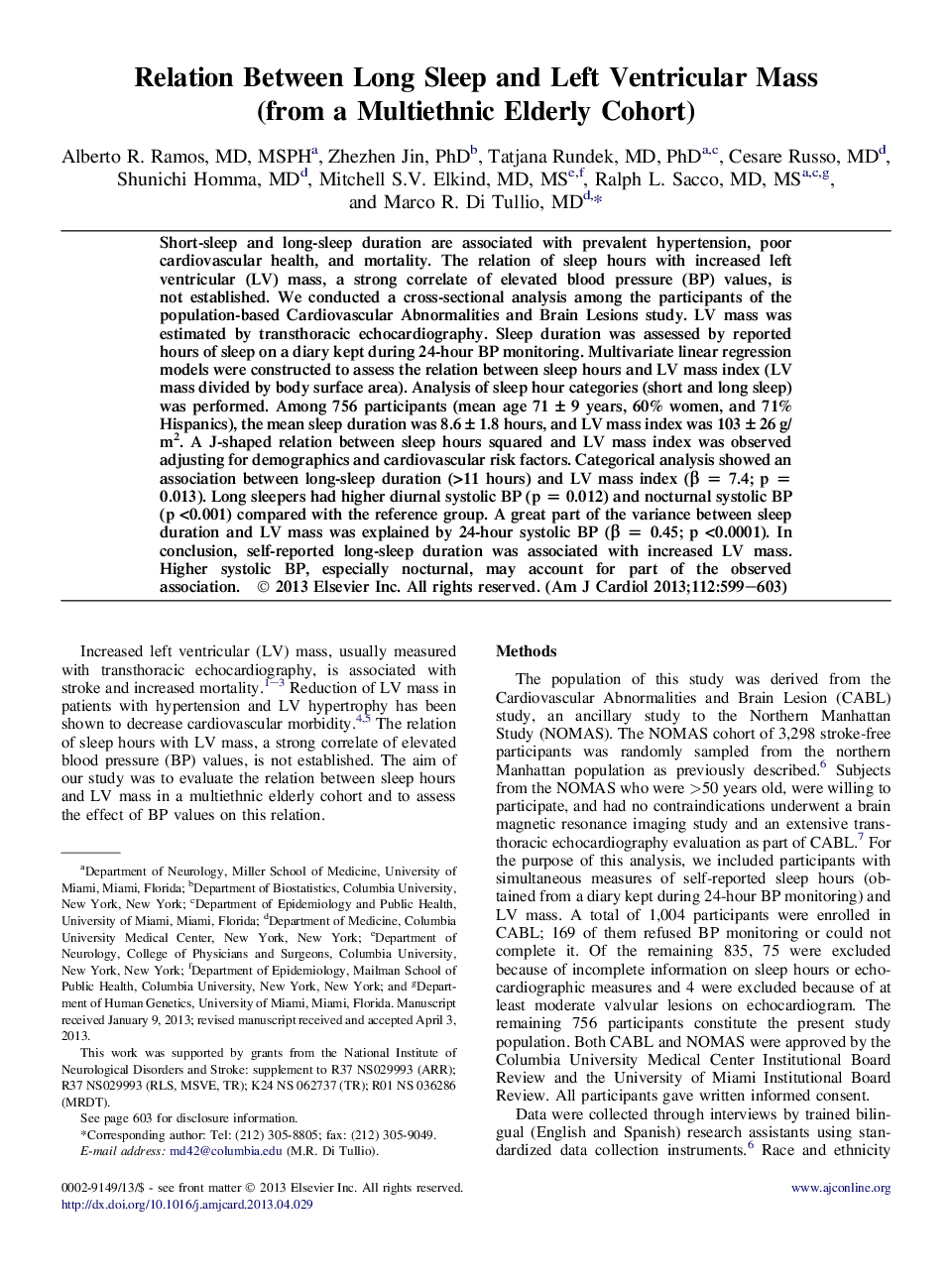| Article ID | Journal | Published Year | Pages | File Type |
|---|---|---|---|---|
| 5930962 | The American Journal of Cardiology | 2013 | 5 Pages |
Short-sleep and long-sleep duration are associated with prevalent hypertension, poor cardiovascular health, and mortality. The relation of sleep hours with increased left ventricular (LV) mass, a strong correlate of elevated blood pressure (BP) values, is not established. We conducted a cross-sectional analysis among the participants of the population-based Cardiovascular Abnormalities and Brain Lesions study. LV mass was estimated by transthoracic echocardiography. Sleep duration was assessed by reported hours of sleep on a diary kept during 24-hour BP monitoring. Multivariate linear regression models were constructed to assess the relation between sleep hours and LV mass index (LV mass divided by body surface area). Analysis of sleep hour categories (short and long sleep) was performed. Among 756 participants (mean age 71 ± 9 years, 60% women, and 71% Hispanics), the mean sleep duration was 8.6 ± 1.8 hours, and LV mass index was 103 ± 26 g/m2. A J-shaped relation between sleep hours squared and LV mass index was observed adjusting for demographics and cardiovascular risk factors. Categorical analysis showed an association between long-sleep duration (>11 hours) and LV mass index (β = 7.4; p = 0.013). Long sleepers had higher diurnal systolic BP (p = 0.012) and nocturnal systolic BP (p <0.001) compared with the reference group. A great part of the variance between sleep duration and LV mass was explained by 24-hour systolic BP (β = 0.45; p <0.0001). In conclusion, self-reported long-sleep duration was associated with increased LV mass. Higher systolic BP, especially nocturnal, may account for part of the observed association.
